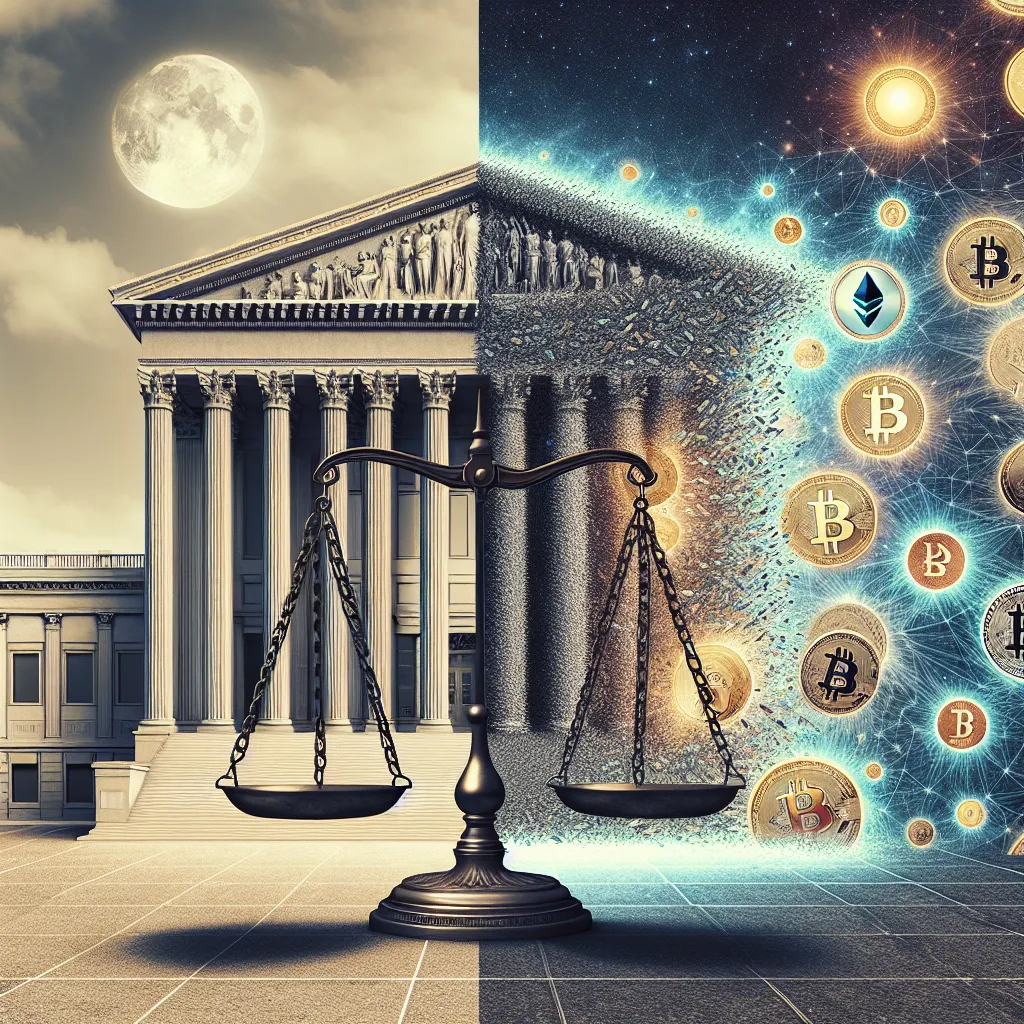Cryptocurrency regulation is a hot topic that has been appearing with increasing frequency in IELTS Writing Task 2 exams. As this subject continues to gain global attention, it’s likely to be featured more prominently in future tests. Let’s examine a relevant question that mirrors those seen in recent IELTS exams and provide sample essays to help you prepare.
Nội dung bài viết
 Government regulation of cryptocurrency
Government regulation of cryptocurrency
Analyzing the Question
Some people believe that governments should regulate cryptocurrency transactions, while others think they should remain unregulated. Discuss both views and give your own opinion.
This question presents a classic IELTS Task 2 format – discussing two opposing views and providing your own opinion. Let’s break it down:
- Topic: Government regulation of cryptocurrency transactions
- View 1: Governments should regulate cryptocurrency transactions
- View 2: Cryptocurrency transactions should remain unregulated
- Task: Discuss both views and give your own opinion
When approaching this question, you need to:
- Explain reasons for both viewpoints
- Provide examples or evidence to support each view
- Clearly state your own opinion
- Use appropriate vocabulary related to finance, technology, and government policy
Now, let’s look at sample essays for different band scores.
Sample Essay 1 (Band 8-9)
Cryptocurrencies have revolutionized the financial landscape, sparking debate about the need for government oversight. While some advocate for strict regulation, others argue for a hands-off approach. This essay will examine both perspectives before presenting my own view.
Proponents of government regulation argue that oversight is necessary to protect consumers and maintain economic stability. Cryptocurrencies’ volatile nature and vulnerability to fraud pose significant risks to investors, especially those unfamiliar with the technology. Moreover, the anonymity of transactions can facilitate money laundering and tax evasion, potentially undermining national economies. By implementing regulations, governments can establish safeguards, ensure transparency, and integrate cryptocurrencies into existing financial systems more smoothly.
Conversely, those opposing regulation contend that government intervention would stifle innovation and contradict the decentralized ethos of cryptocurrencies. They argue that the blockchain technology underpinning these digital assets is inherently secure and self-regulating. Imposing traditional financial rules could hamper the development of groundbreaking applications and limit the potential for financial inclusion, particularly in regions with underdeveloped banking systems. Furthermore, they claim that excessive regulation might drive cryptocurrency activities underground, making them harder to monitor.
In my opinion, a balanced approach is crucial. While complete lack of oversight could lead to economic instability and increased criminal activity, overly stringent regulations might indeed hinder innovation. I believe governments should implement targeted regulations that address specific risks, such as fraud prevention and anti-money laundering measures, while allowing room for technological advancement. This could involve creating specialized regulatory bodies with expertise in blockchain technology to develop nuanced policies that protect consumers without stifling progress.
In conclusion, the regulation of cryptocurrencies is a complex issue that requires careful consideration. A middle ground that balances consumer protection with technological innovation is likely the most effective path forward in this rapidly evolving financial landscape.
(Word count: 298)
Analysis of Band 8-9 Essay
This essay demonstrates excellent characteristics of a high-scoring IELTS Writing Task 2 response:
-
Task Response: The essay fully addresses all parts of the task, discussing both views and clearly stating a personal opinion.
-
Coherence and Cohesion: The essay is well-organized with clear paragraphing. It uses a range of cohesive devices effectively (e.g., “Conversely”, “Moreover”, “Furthermore”).
-
Lexical Resource: The writer uses a wide range of vocabulary accurately and appropriately (e.g., “volatile nature”, “underpinning”, “stifle innovation”, “decentralized ethos”).
-
Grammatical Range and Accuracy: The essay demonstrates a wide range of grammatical structures used accurately and appropriately (e.g., “While complete lack of oversight could lead to…”, “I believe governments should implement…”).
-
Development of Ideas: Each point is well-developed with clear reasoning and relevant examples.
Sample Essay 2 (Band 6-7)
The question of whether governments should regulate cryptocurrency transactions is a topic of much debate. This essay will discuss both sides of the argument and give my opinion.
Those who support government regulation of cryptocurrencies believe it is necessary for several reasons. Firstly, regulation can protect consumers from fraud and scams, which are common in the cryptocurrency world. Secondly, it can help prevent illegal activities like money laundering and tax evasion. Lastly, regulation might make cryptocurrencies more stable and trustworthy, which could encourage more people to use them.
On the other hand, people against regulation argue that it goes against the main idea of cryptocurrencies, which is to be free from government control. They believe that regulation would make cryptocurrencies less efficient and innovative. Also, they think that the technology behind cryptocurrencies, called blockchain, is already secure enough without government interference.
In my opinion, some level of regulation is necessary, but it should not be too strict. I think governments should focus on preventing crime and protecting consumers, but they should not try to control every aspect of cryptocurrency transactions. This way, we can have the benefits of both security and innovation.
To conclude, while there are valid arguments on both sides, I believe a balanced approach to regulating cryptocurrencies is the best solution. This would help make the cryptocurrency market safer without stopping its growth and development.
(Word count: 241)
Analysis of Band 6-7 Essay
This essay demonstrates good characteristics of a mid-range IELTS Writing Task 2 response:
-
Task Response: The essay addresses all parts of the task, discussing both views and stating a personal opinion. However, the ideas could be more fully developed.
-
Coherence and Cohesion: The essay is generally well-organized with clear paragraphing. It uses some cohesive devices (e.g., “Firstly”, “Secondly”, “On the other hand”), but could use a wider range.
-
Lexical Resource: The vocabulary is appropriate and accurate, but lacks the sophistication of higher band scores. There is some attempt at less common vocabulary (e.g., “innovative”, “interference”).
-
Grammatical Range and Accuracy: The essay uses a mix of simple and complex sentences accurately. There are no major grammatical errors, but the range is not as wide as in higher band essays.
-
Development of Ideas: Each main point is supported with reasons, but the ideas could be more fully elaborated with examples or deeper explanation.
Key Vocabulary to Remember
-
Cryptocurrency (noun) /ˌkrɪptəʊˈkʌrənsi/: A digital or virtual currency that uses cryptography for security.
-
Regulation (noun) /ˌreɡjʊˈleɪʃən/: A rule or directive made and maintained by an authority.
-
Blockchain (noun) /ˈblɒktʃeɪn/: A system in which a record of transactions made in bitcoin or another cryptocurrency are maintained across several computers that are linked in a peer-to-peer network.
-
Volatile (adjective) /ˈvɒlətaɪl/: Liable to change rapidly and unpredictably, especially for the worse.
-
Decentralized (adjective) /diːˈsentrəlaɪzd/: Controlled by several local offices or authorities rather than one single one.
-
Innovation (noun) /ˌɪnəˈveɪʃən/: The action or process of innovating; a new method, idea, product, etc.
-
Oversight (noun) /ˈəʊvəsaɪt/: The action of overseeing something; supervision, watchful care.
-
Money laundering (noun) /ˈmʌni ˌlɔːndərɪŋ/: The concealment of the origins of illegally obtained money, typically by means of transfers involving foreign banks or legitimate businesses.
-
Fraud (noun) /frɔːd/: Wrongful or criminal deception intended to result in financial or personal gain.
-
Transparency (noun) /trænsˈpærənsi/: The condition of being transparent; openness, communication, and accountability.
Conclusion
The topic of government regulation of cryptocurrency transactions is likely to remain relevant in IELTS Writing Task 2 exams. To prepare, practice writing essays on related topics such as:
- The impact of cryptocurrencies on traditional banking systems
- The role of digital currencies in international trade
- The environmental impact of cryptocurrency mining
Remember to structure your essay clearly, use a range of vocabulary and grammatical structures, and fully develop your ideas with reasons and examples. Practice writing your own essay on this topic and consider sharing it in the comments section for feedback and discussion. This active engagement will help improve your writing skills and prepare you effectively for the IELTS exam.


